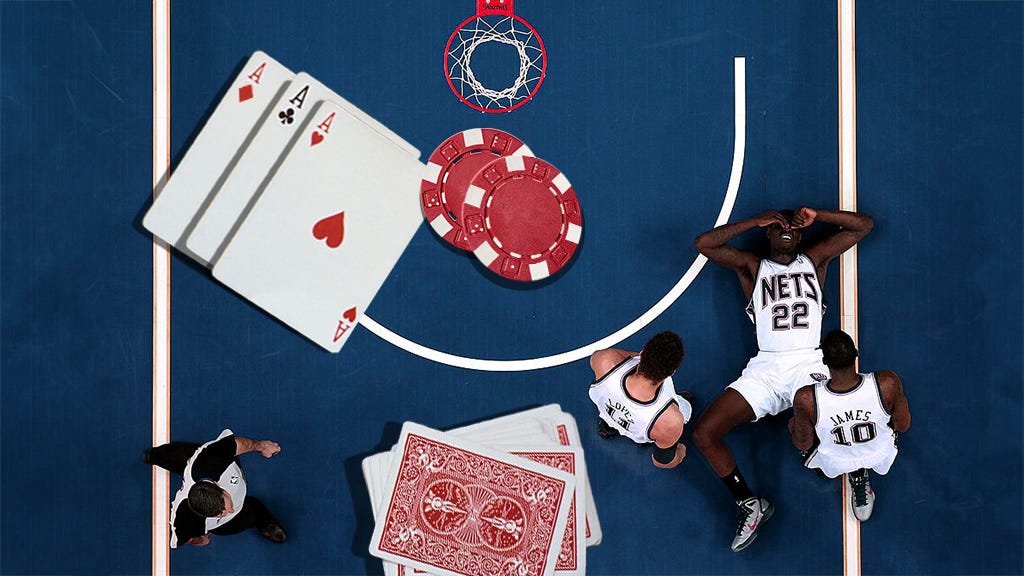The Real Problem with Sports Betting The current NBA scandal was inevitable. But legal sports betting is also destroying what sports is supposed to be about.
“What’s often less discussed is the social impact of sports betting—and how it’s transformed our interactions with sports,” writes Zac Bissonnette. (Illustration by The Free Press; photo by Warren Little via Getty Images)
On Thursday, the Justice Department announced that they had arrested some 30 people involved in illegal gambling—in particular, sports gambling. It is potentially the biggest sports gambling scandal since the college point-shaving scandal in the early 1950s. One of those arrested, Miami Heat guard Terry Rozier, allegedly used inside information to set up fraudulent bets. In 2023, for example, Rozier is accused of letting gamblers know that he would fake an injury and leave a game early, so they could make hundreds of thousands of dollars. And some of that money allegedly wound up in Rozier’s pocket. For decades, both the NCAA and professional sports leagues kept as far away from gambling as they could, fearing its corrupting potential. Since the widespread legalization of sports gambling after a Supreme Court decision in 2018, numerous lawmakers and sports figures have warned that those fears would turn out to be correct. “I think it will pervade the culture,” said Bill Bradley, the former New Jersey senator and legendary New York Knicks player, in 2024. “I think there will be a scandal.” Today, Zac Bissonnette takes a look at another way sports betting has disturbed American culture, turning sports fans into gambling addicts while taking away the essential camaraderie watching a game is designed to engender. For many fans, Zac found, betting is ruining sports at a moment when male isolation and loneliness has become a massive social problem. —The Editors This article is featured in Culture and Ideas. Sign up here to get an update every time a new piece is published. When Rob Minnick was a kid in suburban Philadelphia, social events centered around sports. His father was a sportswriter, his grandfather was an umpire and, when men talked, the topic was sports. When the Phillies won the World Series in 2008, it was a celebratory event for the entire region. He and his friends and family talked excitedly about every game—and he still vividly remembers Ryan Howard’s 58 home-run season in 2006. When he was 18, Minnick saw his first ad for daily fantasy sports—a predecessor to the sports betting apps that became ubiquitous after a 2018 Supreme Court ruling left the regulation of sports betting up to the states. For Minnick, now 26, it seemed like a way to monetize his obsessive knowledge of sports—and have fun while doing it...
Become a paid subscriber Get access to our comments section, special columns like TGIF and Things Worth Remembering, tickets in advance to our live events, and more. UPGRADE TODAY |



